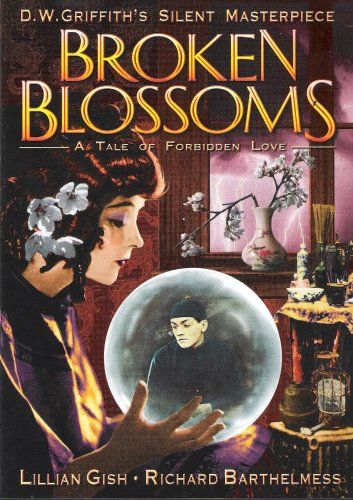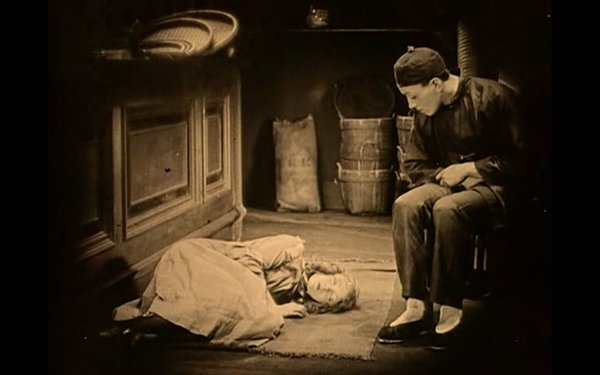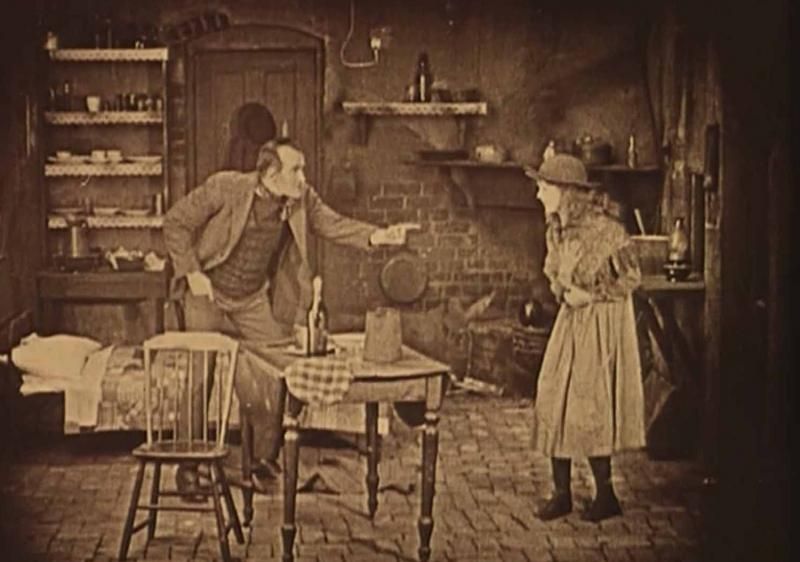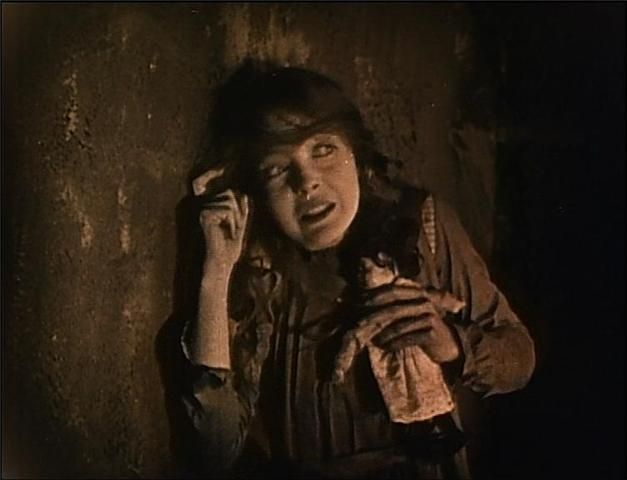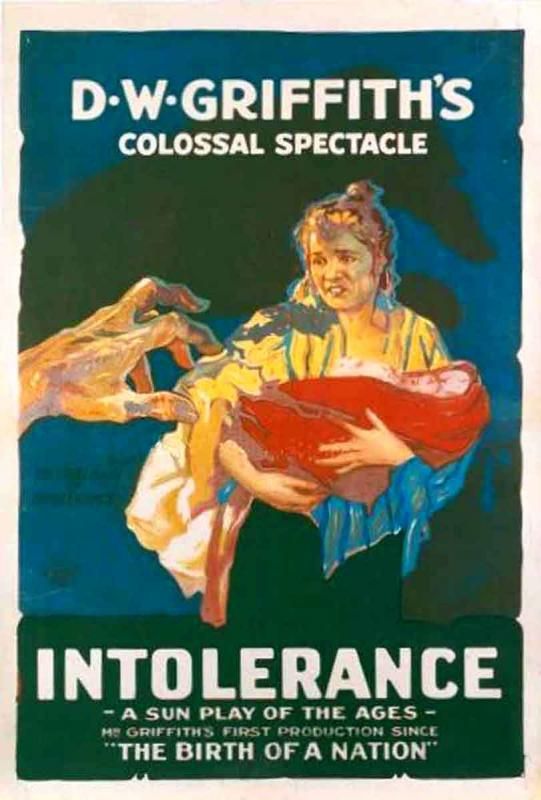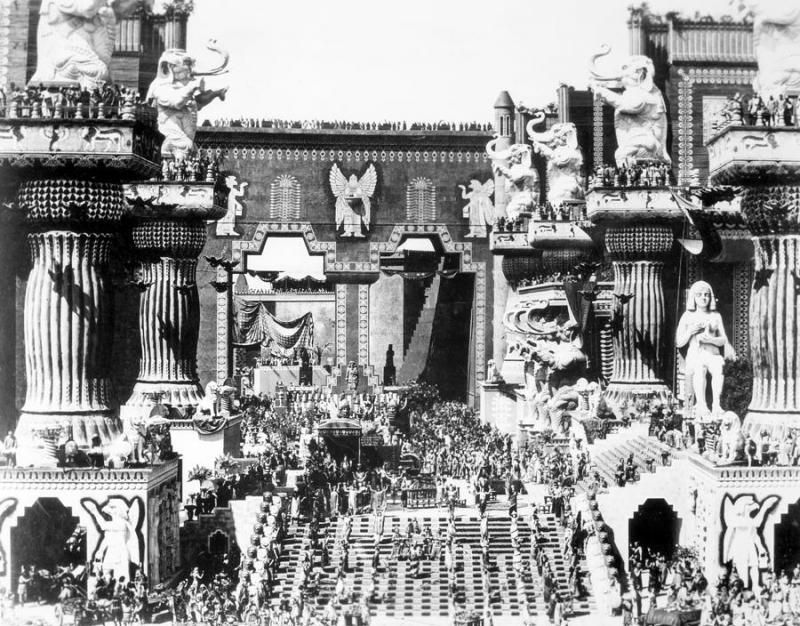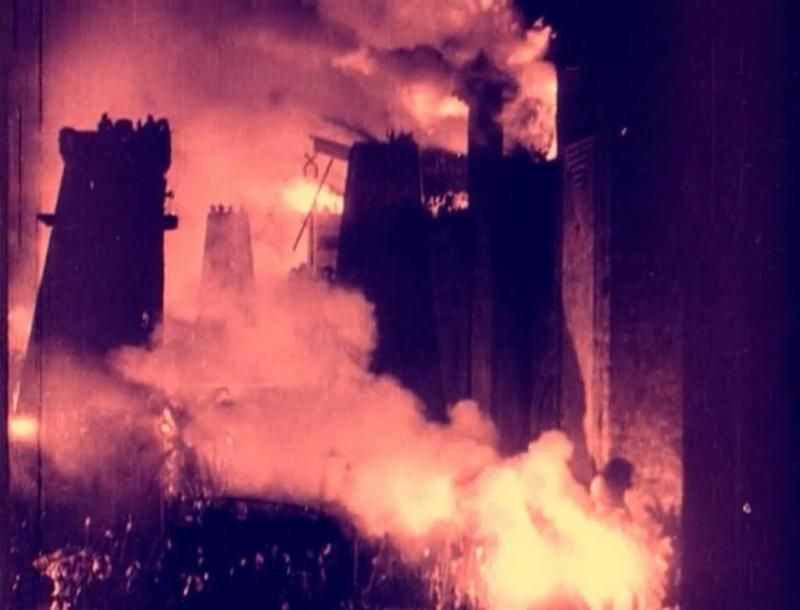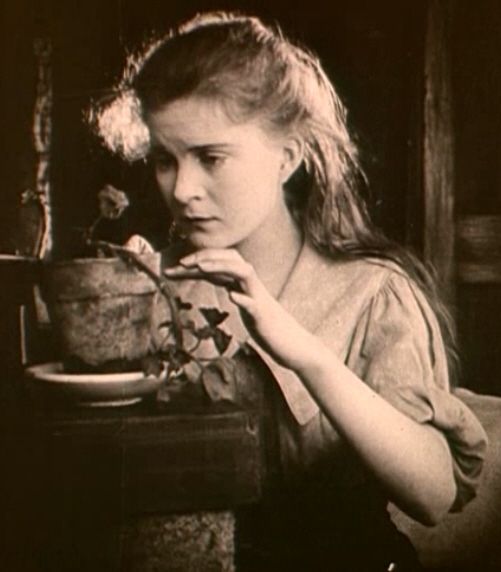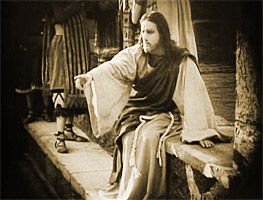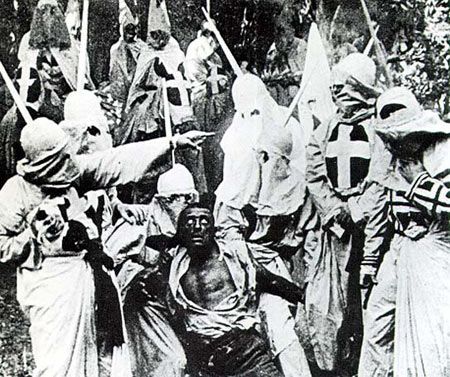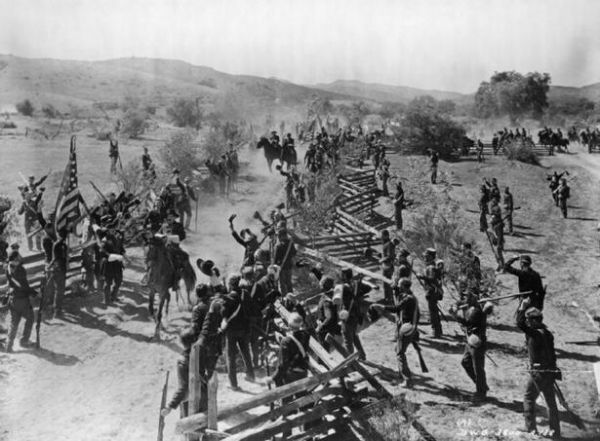Broken
Blossoms
1919
Director: D.W. Griffith
Starring: Lillian Gish, Richard
Barthelmess
Silent
films are curious. They are so far
removed from the cinema we know today that it can be difficult acclimating to
their distinctly separate style. There
are certainly exceptions to this rule; great films are great films regardless,
but only a handful of the silents I’ve seen have managed to break through their
constrictions of time and place and really, truly impress me. Films like Keaton’s comedies, City
Lights, The Cabinet of Dr. Caligari, or The Unknown are examples
of this. Unfortunately, Broken
Blossoms does NOT fall into that category, feeling instead like a film
ridiculous in how utterly out of date it is.
Cheng
Huan (Barthelmess) starts off in China as a well-intentioned missionary who
means to go to London to spread the word of the peace of Buddha. Once there, however, he becomes addicted to
opium and winds up tending a grubby little shop in the Limehouse district. Lucy (Gish) is a waif who shuffles to and fro
in between beatings by her cruel boxer of a father. Cheng falls in love with Lucy from afar, and
one night, when Lucy is left on the streets, he takes her in, feeds her, and
nurses her back to health in the most chaste way possible. Of course everyone will pay for this act of
kindness.
Let’s
deal with the obvious first, shall we? This
being 1919, Hollywood (and America) wasn’t nearly as progressive as it is today
(and frankly, I’m not so sure it’s terribly progressive today). We have, in Broken Blossoms, a
thoroughly American actor playing a Chinese character, complete with squinty
eyes and everything. Oddly enough, this
doesn’t completely bother me. I know
it’s repugnant by today’s standards, but is it fair to hold Broken
Blossoms up to today’s standards?
I tend to be pretty tolerant to issues like this in very old films, and
when you look at the characterization of Cheng Huan in Broken Blossoms rather
than simply the outward caricature, he actually becomes the kindest character
in the film. I don’t like watching
Barthelmess play an Asian any more than the next blogger, but I have to hand it
to Griffith for making the Chinese character the closest thing the film has to
a hero, and this in the middle of a phase in American culture called “Yellow
Peril” where the fear of Chinese immigrants was reaching a peak. It’s an odd feeling, really; I very much wish
that white actors weren’t playing people of color in Broken Blossoms, but at
the same time, I respect the presentation of Cheng Huan in a positive light and
understand that the film is ultimately a product of its time.
No,
far more than the whitewashing in Broken Blossoms, the thing that
turns me off about the film is the unrepentant Melodrama with a capital
“M.” Melodrama, as a genre, has never
sat well with me. Even as a young teen
Siobhan, I cringed when having to read books in school like Sister Carrie
or any of the “young adult” fiction foisted upon me. When I was in middle school, I remember being
agog at all my classmates who insisted on writing the most utterly ridiculous
short stories and poems about drugs, abuse, suicide and the like, none of which
were realistic, and all of which ended badly.
Consequently, I dislike films where I have to watch things go badly in
the most predictable way possible and with as little nuance as can be
managed. And Broken Blossoms is
definitely that film. Lucy’s father is
evil for no other point than to be evil and brutish because the plot demands
it. Oh, okay, sure, I don’t need any
kind of believability there, go right ahead.
Gish’s Lucy is so tortured in her childhood that she cannot physically
smile and must actually use her fingers to curve her mouth upwards. To pull out a phrase from my youth, gag me
with a spoon. This style of filmmaking,
so popular in the early days and certainly around albeit a bit evolved today,
does less than nothing for me. I really
dislike melodrama. So Broken
Blossoms never stood much of a chance.
A
few comments on Lillian Gish in this film.
In general, I am a fan of La Gish; it’s difficult not to be, considering
she’s one of the pioneers of cinema. I’m
not sure how much I like this particular performance, however. For one thing, there is the age of her
Lucy. In 1919, Ms. Gish would have been
26 or 27 years old. I cannot for the
life of me figure out how old the character of Lucy is supposed to be. In some scenes, it appears as if she’s meant
to be late teens; in others, more like 13 or 14. For her part, Gish plays Lucy on the immature
and infantile side, having her entranced with a simple doll and completely
unaware of the feeling of love directed at her from Cheng Huan. Frankly, skewing Lucy so young, even if it’s
only emotionally that young, makes things a bit… squicky. It’s a bit worrisome already that I’m trying
to overlook historical whitewashing, but now I have to watch an older man fall
in love with a woman who has the mental capacity of a 12 year old girl. This does not for fun times make.
But
there is one scene in particular where Gish shines, and that is the scene where
she has locked herself in a closet to escape the temper of her father, who has
just discovered that she had been inside Cheng Huan’s shop. Here is where we really see Ms. Gish’s acting
prowess, as she convincingly gives us a performance of a frightened and
cornered animal incapable of seeing a way out.
The naked fear on her face is staggering, and she is sole reason why I
found this scene the most emotionally affecting of the entire film. Her face, her body language, everything is
committed to the feeling of true dread.
I
suppose I need films like Broken Blossoms every now and then
to remind me just how amazing other silent films are by comparison. It’s not nearly as preachy as Intolerance
or as hateful as The Birth of a Nation, but I’m still not a fan. Melodrama’s not for me, thanks.
Arbitrary
Rating: 5/10
